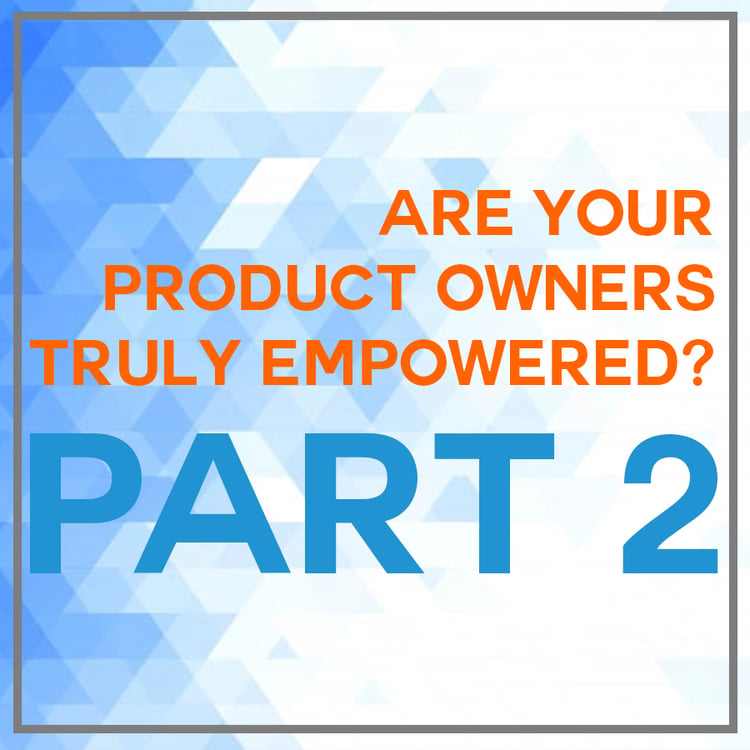Are your Product Owners Truly Empowered? Part 2

In the first installment of our Product Owner Empowerment series, we talked about the three crucial dimensions of ‘Knowledge’ that affect a Product Owner’s effectiveness. This post is going to take a deeper dive into the impact Empathy has on a Product Owner’s ability to succeed.
Empathy: Assuming positive intent, empathy is something that comes naturally to a person. However, environmental factors can influence a person’s ability to relate or connect with another person or team. Let’s explore some aspects of empathy and how they may impact a Product Owner’s success.
- Empathy towards the team(s): To facilitate an empathetic relationship between a Product Owner and the team, the PO must be able to meet the team where they are (literally and figuratively). Getting to know the team members and building a rapport requires the Product Owner to extensively interact with the team and proactively work to build such relationships. Organizations should facilitate this by making sure Product Owners are physically located where the team is and is empowered to not only represent the team to the business but also play the role of protector from external interruptions, so that team can function effectively. As alluded to above, having a good understanding of what it takes to deliver, helps tremendously with the ability to place themselves in the team’s shoes and see things from their perspective.
- Empathy towards the customer(s): It is easy to assume that a Product Owner acting on behalf of the business will automatically have empathy and an understanding of their needs to adequately represent their business interests. However, organizational culture can sometimes influence how a Product Owner prioritizes work. If it is only the sponsors directing the team’s scope and prioritization, a critical element of customer input is missed. Product Owners should place sufficient emphasis on obtaining customer opinion and feedback to inform the direction of product development.
- Empathy in the Organization: This factor relates to the organizational culture. As companies embrace Agile and expect its benefits to be equally realized, more emphasis on the desire to be lean begins to form. While being lean is a goal every organization should have, it is important to understand what kind of impact a lean organization has on individual teams or team members. A systemic push to be lean, in combination with less than optimal Agile maturity and the presence of antipatterns, can lead to teams being held against unsustainable delivery expectations. This problem is more common than you would think. Most organizations are going through some level of Agile transformation, but leadership expectations of benefits realization are always a few steps ahead of where the organization truly is on the Agile journey. Having the right set of expectations and the empathy necessary to reset them based on continuous learning and feedback is needed at an organizational level.
Check back next week to see how a Product Owner’s success is tied to psychological safety for themselves and the teams they are working with.
If you are a Product Owner or your Agile team struggles with this role, you won’t want to miss our upcoming webinar on Product Owner Empowerment. This webinar will be held on December 15th and you can register today here! Space is limited and on a first-come basis.
More from the blog
View All Blog PostsSubscribe to Our Blog
Fill out your email address to receive notifications about new blog posts from CC Pace!
